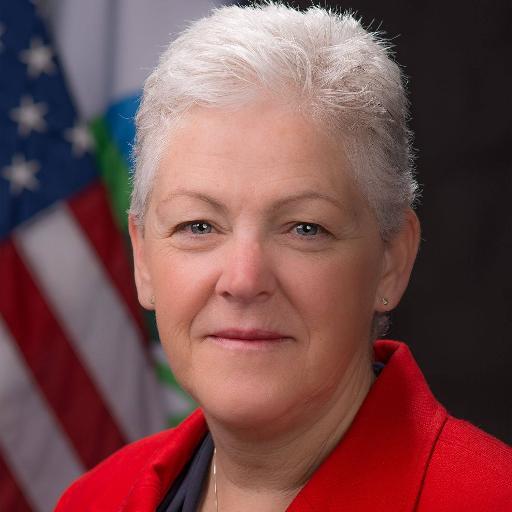
The Environmental Protection Agency is looking for guidance from the courts regarding the schedule for state compliance with the Clean Power Plan, the carbon emissions rule for existing coal-fired power plants that was frozen by the Supreme Court in February, EPA Administrator Gina McCarthy told lawmakers on Tuesday.
The high-court stay will remain in place until the legal challenge to the rule has worked its way through the federal judicial system. Oral arguments are scheduled to begin June 2 before the Court of Appeals for the D.C. Circuit, and an eventual Supreme Court ruling is not expected before summer 2017.
While the EPA has advised states not to submit their preliminary actions plans by next September, as originally intended, it has not issued any changes to subsequent deadlines, including the 2022 date for actual emissions reductions to begin. The concern is that if EPA does not readjust – or “toll” — the various compliance milestones, states that suspended work during the stay will have fallen behind if the rule survives the lawsuit.
In an EPA budget hearing on Tuesday, Senate Environment and Public Works Chairman Jim Inhofe (R-Okla.) said the legal challenge might not be resolved until 2018, the year in which the final state emissions reductions plans are due.
“Is that deadline going to be delayed also, the same as the deadline for the beginning that would have taken place on September the 6th?” he asked McCarthy.
McCarthy responded, “Senator, what we do know is that the implementation of the rule is currently stayed. The Supreme Court didn’t actually speak to any of the tolling issues regarding the compliance requirements. We certainly know that the issue will not be resolved by this coming October or September. Beyond that, the courts are going to have to speak to that issue when decisions are made.”
Senator Sen. Shelley Moore Capito (R-W.Va.) later called for definitive information from EPA regarding potential suspension of the compliance date deadlines, given the plan’s “massive consequences” for the states. McCarthy said the agency hopes the legal process will be expedited, but noted again that the Supreme Court had not addressed the tolling issue.
“We do not have the authority on our own to be able to make changes to [the Supreme Court] rule, and we certainly expect that the courts, when they make their final decisions, will speak to that issue directly,” said McCarthy, who reaffirmed her confidence that the CPP would survive the legal challenge.
McCarthy said, though, that in the meantime that her management team is working closely with the EPA General Counsel’s Office and the Department of Justice to ensure the agency is not conducting any enforcement or implementation work on the CPP that would violate the Supreme Court stay.
The EPA is requesting nearly $8.3 billion for fiscal 2017, which begins on Oct. 1. That would include $235 million for emissions reduction activities, with roughly $25 million for EPA efforts to work with states that are voluntarily moving forward with implementation during the court stay and $25 million in grants available to states for those efforts, McCarthy said. The rest would be distributed to programs such as vehicle and methane reductions and the Energy Star energy efficiency project, she added.
McCarthy faced heat from Inhofe and other GOP senators for focusing of climate change, which the chairman charged came at the expense of dealing with priority issues such as the Flint, Mich., water crisis, and for EPA regulations the lawmakers said have cost thousands of jobs in coal and other industries in their states.
“The president is intent on picking winners and losers in the energy economy,” Inhofe said.
Democratic lawmakers countered that the coal industry’s troubles are the result of a changing energy market currently being driven by lower natural gas prices. More than one noted 2015 was the hottest year on record globally, and asserted that the Clean Power Plan would be a key element in the U.S. effort to combat this threat.
Climate change driven by emissions also threatens the states’ economic well-being, Sen. Sheldon Whitehouse (D-R.I.) said, urging the EPA to sustain its efforts. He said recent newspaper articles reported that seaside marshes in Rhode Island cannot keep up with rising sea levels, and that 550 historic buildings in and near the city of Newport, with a total value of nearly $500 million, are also vulnerable to the rising waters.
“Unless somebody around here wants to repeal the law of thermal expansion, then we’re going to have to address this problem,” Whitehouse said. He added later, “The more that Wyoming coal pollutes, the more that we experience these change in Rhode Island.”